Co-op Live: How UK’s biggest indoor arena became butt of jokes
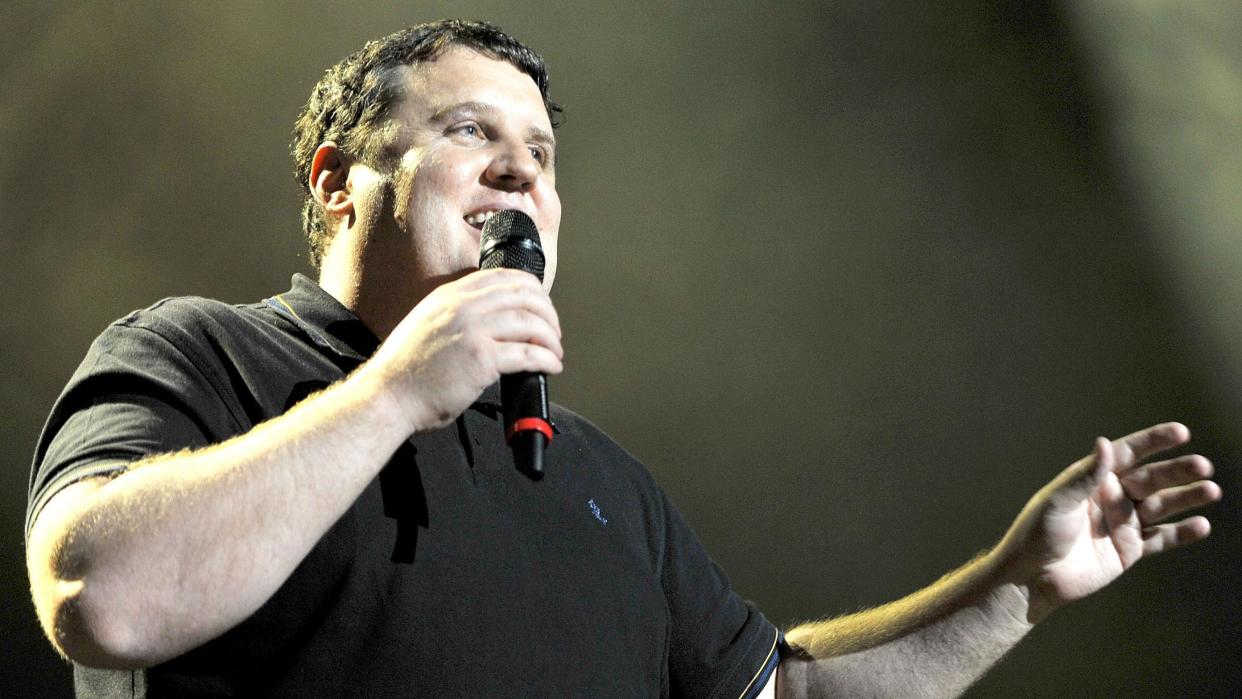
Peter Kay is not normally known for public displays of irritation. But after having his shows at the new £365m Co-op Live arena in Manchester postponed for a second time, the comedian could not hide his exasperation at the venue's calamitous opening.
Kay originally put a poster on social media proudly proclaiming that he was going to be the "first artist in the world to perform" at "Europe's biggest new arena".
But on Friday, he changed that to say he "is hoping to eventually perform at Europe's biggest new arena*" - with the asterisk referring to a note in small letters in the corner saying "if they actually open the place".
Kay is not alone in getting frustrated. Thousands of ticket-holders - for his and other shows - have had their plans upended by its delays. Meanwhile the arena's manager got into a public row with small music venues - and has since quit.
What was supposed to be a triumphant opening week has turned into a debacle.
So what went wrong?
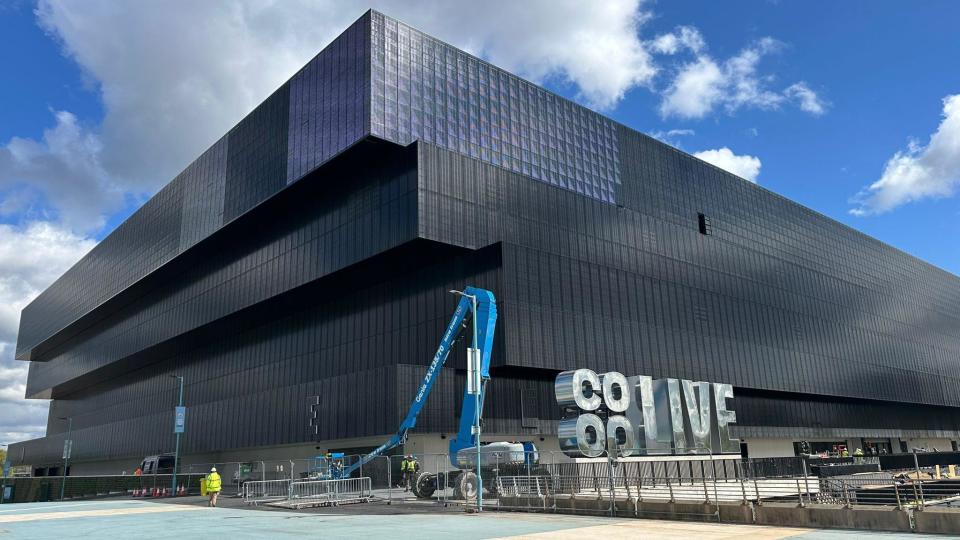
Speaking a month ago, executive director and general manager Gary Roden was confident about the venue's opening plans.
This would be an upgrade on other arenas, he told me - such as its rival across Manchester, the AO Arena, which has been operating since 1995.
"It's going to be difficult for an artist to say, 'Yeah, I’ve booked the arena that is 30 years old versus the arena that's brand new'," said Mr Roden. "That's the reality of the situation.
"My challenge, though, is that the AO [Arena] is up and running and it's operating. So we've got to open, we've got to open well, and we've got to make sure all those things that we've been celebrating, saying, 'They're going to be great', are great in the delivery - which I'm very confident they will be."
Things did not go to plan.
First, several thousand people had tickets cancelled at the last minute before the first test event last Saturday.
Most of the seating was shut, as were bars and food outlets outside one main concourse. Even then, food ran short, an escalator was not working, some toilets were without toilet roll or functioning hand dryers, and there were some temporary wires and floor coverings.
Rick Astley saved the day on stage - but the venue seemed a long way off being fully ready.
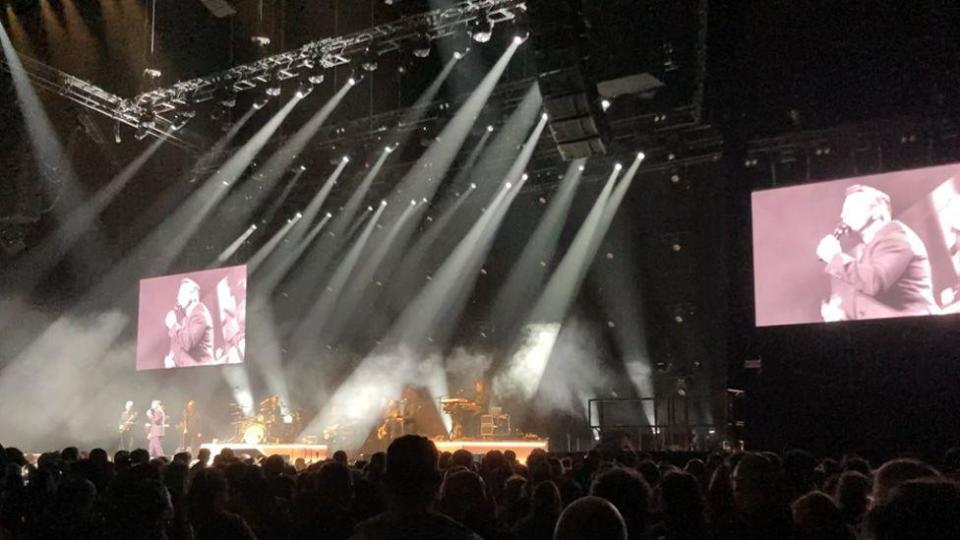
Two days later, Kay's opening shows were postponed for the first time, with bosses explaining work on the arena's power supply was "a few days" behind schedule.
The comedian took it in good humour that time, joking that he would have to "miss my bums-and-tums class" on the rescheduled dates.
Tim Leiweke, chief executive of the arena's US developer Oak View Group, said the delay was down to a "commitment to safety", and that "little bumps" were to be expected.
Meanwhile, a row was brewing over comments Mr Roden made about small music venues.
Struggling grassroots pubs and clubs have been calling for financial support from arenas - similar to the subsidies given by Premier League clubs in the football pyramid.
In his BBC interview last month, Mr Roden dismissed that idea, saying there was not a robust way to decide which venues would get any subsidy. Some were struggling because they were "poorly run", and their campaign had been "quite aggressive", he said.
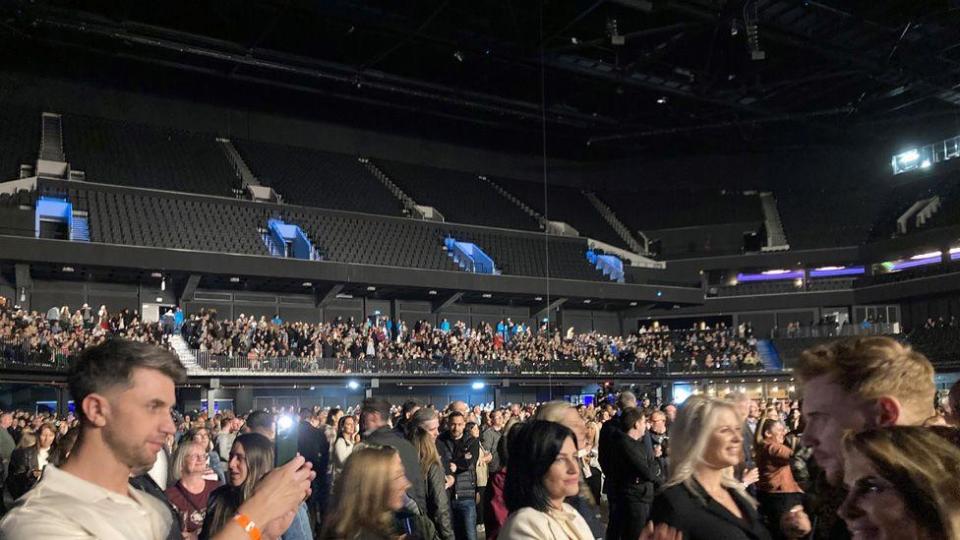
In response, the Music Venue Trust called his comments "disrespectful and disingenuous", and pointed out an irony that they had been made by someone whose own venue had "unfortunately fallen into such difficulties".
By Thursday, Mr Roden had, according to a Co-op Live statement, "decided to resign".
A further statement said the arena and Oak View Group did not "share the sentiment" expressed by Mr Roden "regarding the grassroots industry".
That row did not look good, but the delays are likely to have been the bigger factor in his departure. And his decision was presumably taken in the knowledge of what was still to come.
The next day, the arena announced it was postponing Kay's shows again, along with Saturday's planned gig by US rock band The Black Keys.
"Unfortunately the Co-op Live still isn't ready and so, as yet, remains untested for a large-scale audience," Kay wrote. "Consequently, they are having to reschedule my two shows yet again (I know I can't believe it either)."
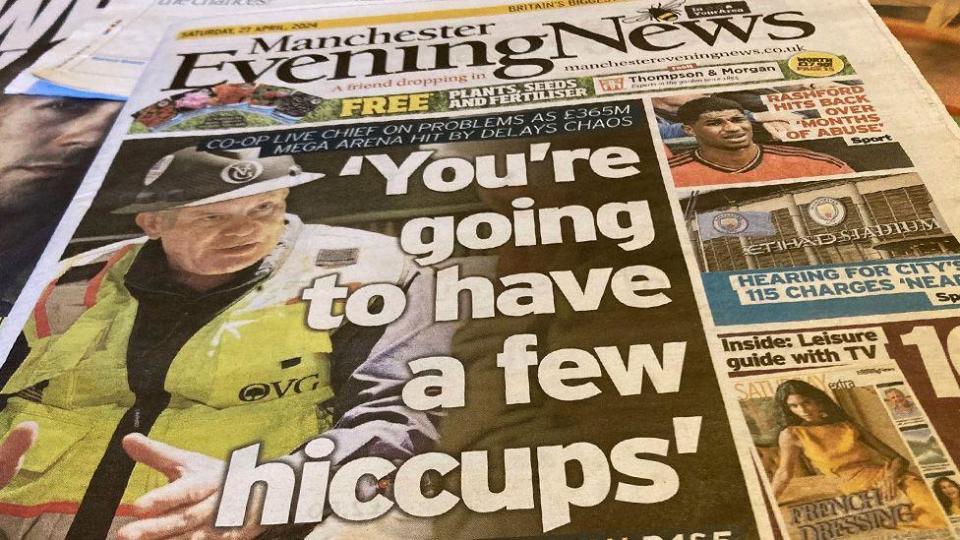
The arena is now the butt of jokes, and not just from professional comedians.
One Peter Kay fan on social media nicknamed it "Co-flop Live". Chris Roper, another ticket-holder, dubbed it "Co-op dead".
"It's dead before it's got off the ground, isn't it?" Mr Roper, from Haworth in West Yorkshire, told the BBC.
He says he was unhappy with the short notice of the first postponement, and lost money on a non-refundable hotel.
"Peter Kay summed it up," he added. "He said everyone's massively disappointed but you're better safe than sorry. You don't go to a venue that's unsafe. But they surely knew [about] this a long time ago."
Jonathan Chorlton, from Manchester but living in Doncaster, South Yorkshire, had tickets for The Black Keys - but cannot make the new date because he will be on holiday.
"It's just felt like it's been really badly organised," he said.
The venue explained on Friday that it needs extra time "to continue testing enhanced emergency communications thoroughly".
Speaking to the Manchester Evening News, Mr Leiweke pointed to a police request for a specific emergency radio system, which he said had been "a bit of a curveball".
A statement from the council and emergency services on Friday suggested there was more to it. They said outstanding problems include "a fully tested emergency services communication system, and some remaining internal security systems, and fire safety measures".
But "work is progressing quickly in all of these areas", the statement added.
The authorities' insistence on fully functioning safety systems is hardly surprising. It's seven years since 22 people died in a suicide bombing at the city's other arena.
'A very sour taste'
When Co-op Live does open, there are also concerns around car parking and transport, said Manchester DJ and author Dave Haslam.
Overall, the way events have unfolded has been "very poor", he said.
"Not just in terms of sending a very regrettable message to the rest of the world about this new arena, but obviously for the people who have bought tickets it's an almighty headache.
"Certainly, I think in Manchester it’s left a very sour taste in the mouth and there's not very much goodwill towards the business as a result."
Announcing Friday's postponements, Co-op Live said: "We deeply appreciate the impact this will have on excited fans, and sincerely apologise for the inconvenience that this change will undoubtedly cause."
It added that the extra preparation work "is vital to satisfy the rigorous set of guidelines and protocols that are necessary for a venue of this size to ensure that our fans, artists and staff have the safest experience possible".
Music promoter John Giddings, who puts on events like the Isle of Wight festival, said the problems will be forgotten after the arena gets up and running.
"I think it’s a minor hiccup because it’s a huge operation," he told BBC Radio 4's Today programme on Saturday. "Once they’ve got a few gigs under their belt, everybody will start forgetting about it."
Rather than being opened by a local hero, the first official event in the venue's schedule is now a gig by US rapper A Boogie Wit Da Hoodie on Wednesday.
The big concerts then come thick and fast for the rest of May - the first two nights of Olivia Rodrigo's UK tour on Friday and Saturday, then Keane, five nights of Take That, followed by Elbow, Eric Clapton, Barry Manilow - and, finally, Peter Kay.

